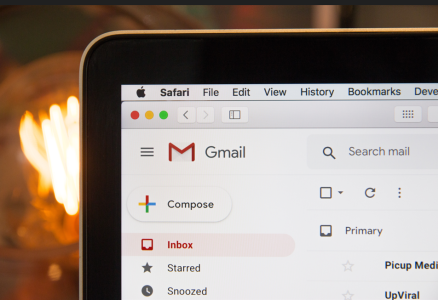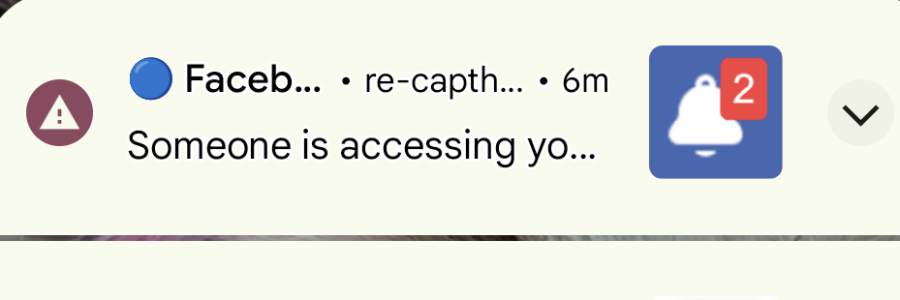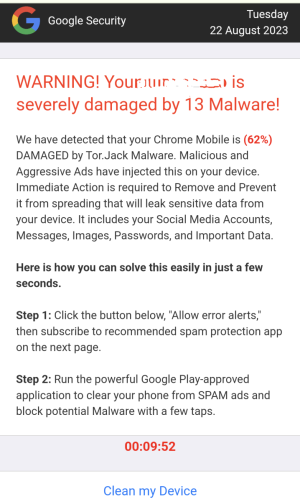Scam victim discovers ‘horrifying’ secret after checking her account security
Disclaimer: Names with an asterisk(*) beside them have been changed to protect the privacy of the individual.
Cybersecurity breaches are no laughing matter. How many of us never think to check our account security until it's too late? Even when we do, what we may find can be unsettling.
Genevieve* knew this all too well after she received a bone-chilling email that prompted her to delve deeper into her internet safety.
Her story is a stark reminder of the potentially distressing consequences of falling victim to a data leak.
Genevieve* had uncovered by digging through her Gmail that her first data leak happened in 2017, involving a website she used to read restaurant reviews and view menus.
The email tied to her account and the password was leaked onto private forums, not once, but twice, in 2019.
Her phone number was also leaked on the internet in 2021.
‘I remember getting notified about it and changing my passwords in a hurry,’ Genevieve* told a news outlet. ‘But nothing really happened.’
She could always tell when her personal information was shared because a surge of scam calls typically followed it: 'I can tell it’s been posted somewhere when I get a bunch of new scam calls.'
One particularly daunting email jolted her to action. The subject line has her full name and past password on it. Inside, the email claimed her phone, email and even her camera were hacked, and it had pictures and videos of her in compromising positions.
'I just started sobbing. I didn’t know what to do.'
Fortunately, she quickly spotted a glaring inconsistency. The password mentioned had long been retired; it wasn’t connected to her existing accounts.
While this was a massive relief, it did nothing to lessen the fear that underscored the incident.
Moving on from the distressing email, she decided to scrutinise her account, enabling her to uncover the shocking scale and extent of attempts to invade her privacy.
Every day, her account saw at least twelve different intrusion attempts.
'It was pretty horrifying,' she admitted. 'It was just so many people, every single day, trying to get in.'
Despite the many attempts, the intruders couldn’t gain access to her account due to her retired password.
This frightening story is becoming very common, as Nigel Phair from the University of New South Wales’s (UNSW) Institute for Cyber Security warns. 'We’ve had three really big data breaches in the last six months,' he shared.
Genevieve’s* data leak might have been from shopping and lifestyle digital platforms.
Phair advises voluntarily sharing as minimal data as possible, keeping the safety fixtures like multifactor authentication employed wherever possible.
When asked about dealing with scam emails, Phair provides simple, direct advice. 'Ignore them, delete them, don’t engage.'
Needless to say, Genevieve* didn’t engage in the terrifying email. She knows that these cybercriminals feed on panic and fear.
Phair said she was right not to engage as its threat wasn’t real and that she did the right thing by deleting it.
‘That’s just criminals scaring her,’ he said. ‘They have a well-established playbook.’
Genevieve* has since implemented robust security measures for all her accounts, using two-factor authentication and deploying an authenticator app, which undeniably is a smart step forward to safeguard her digital footprint.
More than securing your accounts, staying informed is vital to avoid being a victim of such scams. You can read posts at our Scam Watch forum to learn about scams. You may also post your experiences there to warn other members.
If you encounter any cyber scams, you may report them to ReportCyber, an initiative of the Australian Cyber Security Centre (ACSC).
You may also contact Services Australia's Scams and Identity Theft Helpdesk on 1800 941 126 or send a report to Australian Competition and Consumer Commission here.
To check if you have been a victim of a data leak, you may access Google’s Dark Web Report through your account or visit the Have I Been Pwned? website here.

Remember, your information is your power. Protect yourselves, your data and your peace of mind in this increasingly digitised world.
Have you had a similar experience or know someone who fell victim to a scam? Share them in the comments below!
Cybersecurity breaches are no laughing matter. How many of us never think to check our account security until it's too late? Even when we do, what we may find can be unsettling.
Genevieve* knew this all too well after she received a bone-chilling email that prompted her to delve deeper into her internet safety.
Her story is a stark reminder of the potentially distressing consequences of falling victim to a data leak.
Genevieve* had uncovered by digging through her Gmail that her first data leak happened in 2017, involving a website she used to read restaurant reviews and view menus.
The email tied to her account and the password was leaked onto private forums, not once, but twice, in 2019.
Her phone number was also leaked on the internet in 2021.
‘I remember getting notified about it and changing my passwords in a hurry,’ Genevieve* told a news outlet. ‘But nothing really happened.’
She could always tell when her personal information was shared because a surge of scam calls typically followed it: 'I can tell it’s been posted somewhere when I get a bunch of new scam calls.'
One particularly daunting email jolted her to action. The subject line has her full name and past password on it. Inside, the email claimed her phone, email and even her camera were hacked, and it had pictures and videos of her in compromising positions.
For a moment, Genevieve* was caught in a whirlwind of overwhelming terror and bewilderment.
'I just started sobbing. I didn’t know what to do.'
Fortunately, she quickly spotted a glaring inconsistency. The password mentioned had long been retired; it wasn’t connected to her existing accounts.
While this was a massive relief, it did nothing to lessen the fear that underscored the incident.
Moving on from the distressing email, she decided to scrutinise her account, enabling her to uncover the shocking scale and extent of attempts to invade her privacy.
Every day, her account saw at least twelve different intrusion attempts.
'It was pretty horrifying,' she admitted. 'It was just so many people, every single day, trying to get in.'
Despite the many attempts, the intruders couldn’t gain access to her account due to her retired password.
This frightening story is becoming very common, as Nigel Phair from the University of New South Wales’s (UNSW) Institute for Cyber Security warns. 'We’ve had three really big data breaches in the last six months,' he shared.
Genevieve’s* data leak might have been from shopping and lifestyle digital platforms.
Phair advises voluntarily sharing as minimal data as possible, keeping the safety fixtures like multifactor authentication employed wherever possible.
When asked about dealing with scam emails, Phair provides simple, direct advice. 'Ignore them, delete them, don’t engage.'
Needless to say, Genevieve* didn’t engage in the terrifying email. She knows that these cybercriminals feed on panic and fear.
Phair said she was right not to engage as its threat wasn’t real and that she did the right thing by deleting it.
‘That’s just criminals scaring her,’ he said. ‘They have a well-established playbook.’
Genevieve* has since implemented robust security measures for all her accounts, using two-factor authentication and deploying an authenticator app, which undeniably is a smart step forward to safeguard her digital footprint.
More than securing your accounts, staying informed is vital to avoid being a victim of such scams. You can read posts at our Scam Watch forum to learn about scams. You may also post your experiences there to warn other members.
If you encounter any cyber scams, you may report them to ReportCyber, an initiative of the Australian Cyber Security Centre (ACSC).
You may also contact Services Australia's Scams and Identity Theft Helpdesk on 1800 941 126 or send a report to Australian Competition and Consumer Commission here.
To check if you have been a victim of a data leak, you may access Google’s Dark Web Report through your account or visit the Have I Been Pwned? website here.
Key Takeaways
- Genevieve's* personal data was leaked years ago, leading to her receiving scam emails and calls until recently.
- She received a disturbing email claiming to have hacked her accounts and recorded her prompting her to check her account security.
- She found multiple failed attempts to access her account worldwide, confirming that although her out-of-date information was still being circulated, her accounts remained secure.
- Nigel Phair from UNSW’s Institute for Cyber Security advises people to provide as little personal information as possible when using shopping and lifestyle apps and ensure they use multi-factor authentication.
Remember, your information is your power. Protect yourselves, your data and your peace of mind in this increasingly digitised world.
Have you had a similar experience or know someone who fell victim to a scam? Share them in the comments below!











